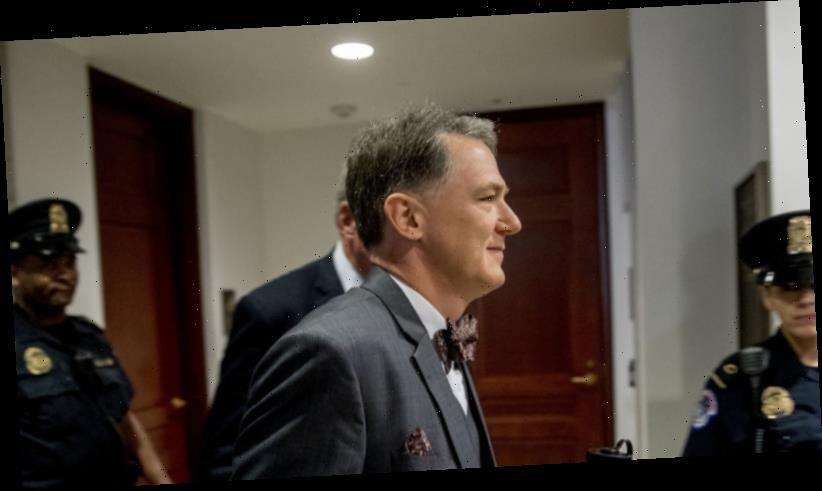Washington: George Kent, the deputy assistant secretary of state in charge of Ukraine policy, arrived on Capitol Hill to face questions from investigators about his knowledge of the widening Ukraine scandal.
Deputy Assistant Secretary of State George Kent.Credit:AP
Kent, who appeared behind closed doors despite the State Department directing him not to do so, said he raised concerns to colleagues early this year about the pressure being directed at Ukraine by President Donald Trump and his private lawyer, Rudy Giuliani, to pursue investigations into Trump's political rivals, according to people familiar with Kent's warnings.
As far back as March, they said, Kent was pointing to Giuliani's role in what he called a "disinformation" campaign intended to use a Ukrainian prosecutor to smear targets of the president.
Trump’s personal lawyer Rudy Giuliani had had a week of head-scratching statements and retractions.Credit:AP
Those included former Vice President Joe Biden; Marie Yovanovitch, then the US ambassador to Ukraine; and Ukrainians who disseminated damaging information during the 2016 campaign about Trump's campaign chairman, Paul Manafort.
Kent entered the obscured chambers of the House Intelligence Committee on Tuesday morning to kick off another jam-packed day for investigators.
He was the latest official to appear in a procession of high-ranking witnesses to the US House's impeachment inquiry.
Lawmakers are scheduled to return to the Capitol from a two-week recess later Tuesday, and Democrats will huddle to compare notes on the direction of the inquiry.
Separately, the committees leading the investigation had set a series of crucial deadlines on Tuesday for key witnesses and executive branch agencies to hand over relevant documents.
According to officials familiar with the investigation, the State Department directed Kent not to appear and sought to limit his testimony.
The House Intelligence Committee then issued a last-minute subpoena ordering him to appear and he complied.
Kent's warnings about the disinformation effort are reflected in internal State Department emails provided by the agency's inspector general to Congress this month and obtained by The New York Times.
In one, he assailed a "fake news smear" being pushed against Yovanovitch by conservative media personalities allied with Trump. In another, he criticised the Ukrainian prosecutor who was pushing the claims about Yovanovitch and called them "complete poppycock."
At the White House, Trump, picking up a talking point from his Republican allies in Congress, accused Democrats of "allowing no transparency at the Witch Hunt hearings," and said if Republicans tried to do the same thing "they would be excoriated by the Fake News."
Kent's appearance followed an emerging pattern. According to officials familiar with the investigation, the State Department directed Kent not to appear and sought to limit his testimony. The House Intelligence Committee then issued a last-minute subpoena ordering him to appear and he complied.
He was the second high-ranking State Department official to defy the White House's wishes and appear for questioning in recent days.
The first was Yovanovitch, who Trump ordered be removed from her ambassadorial post in May, but is still a State Department employee.
She answered questions from investigators Friday, offering a blistering assessment of the Trump administration's foreign policy and saying she had been told Trump himself pressed for her ouster for months based on "false claims" by outsiders working for their own personal and political objectives.
Fiona Hill, a former top White House Europe adviser, appeared on Monday under subpoena as well, and other current and former officials are expected to follow suit, casting doubt on the effectiveness of the White House's attempts to stonewall the House inquiry.
Gordon Sondland, the US ambassador to Europe who appears to be at the centre of the pressure campaign, will meet investigators Thursday.
New York Times
Source: Read Full Article


